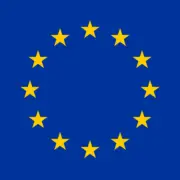Building trust: What GDPR can do for your council
How would the introduction of GDPR have affected Basildon Council?
Prior to the introduction of GDPR (General Data Protection Regulation) in 2017, Basildon Council was fined £150,000 for failing to store personal data securely. Because there was no adequate data protection policy in place, details of a family’s disabilities, including mental health issues, were published online. They remained publicly accessible for weeks. This incident had huge reputational and financial repercussions for the Council.
The £150,000 fine was imposed under the old Data Protection Act. With the enforcement of GDPR in May, the ICO are now able to impose higher fines, which go up to 4% of the organisation’s turnover, or €20,000,000, whichever is greater. What’s more, the scope of the new legislation is far broader, setting higher standards of transparency for any organisation that handles EU citizens’ data.
Councils are already failing internal audits and incurring fines on an annual basis. What will happen now GDPR is enforceable? Unless action is taken now, councils stand to fall short of the new rules and be subject to the new fines. The purpose of GDPR is to protect citizens’ rights, not to cause councils to incur avoidable costs. How can GDPR help councils prevent the kind of incident Basildon has seen, and foster trust among residents?
How can new legislation help?
There is a lot of apprehension among residents regarding their privacy. Who holds my data, and why? If personal data is stored, is it being held securely? GDPR is designed to provide answers to those questions.
If an organisation is GDPR compliant, it means that personal data is only being stored when strictly necessary and under the best possible safeguards. More than that, GDPR puts control over data back into citizens’ hands, creating a new era of transparency. This is how GDPR, instead of remaining a looming spectre, can become a tool for councils to build trust.
GDPR compliancy for councils
The task for councils is clear: they must be able to map out the exact course data takes through their systems. When a resident requests to see their personal data, the council must be able to recover it. If you imagine the amount of data currently in the hands of councils, much of it in archival storage, you will see that this is a huge undertaking.
There are other liabilities councils may not even be aware of, such as their Active Directory management. Too often, when council employees change roles, their accounts remain active. This means that they can be exploited by disgruntled ex-employees, and even become targets for hackers. By implementing a system which closes obsolete accounts, councils can ensure that access is granted only to the right people.
There are big cost-saving benefits to be achieved by creating a safe, streamlined and transparent data policy. As well as avoiding fines and passing internal audits, in the process of becoming GDPR compliant, councils can effect substantial savings by reducing their storage of obsolete data.
We have the experience and expertise to reform your data management. If you are a council looking for a GDPR compliancy solution, please contact us on 0844 586 0040 or [email protected].




